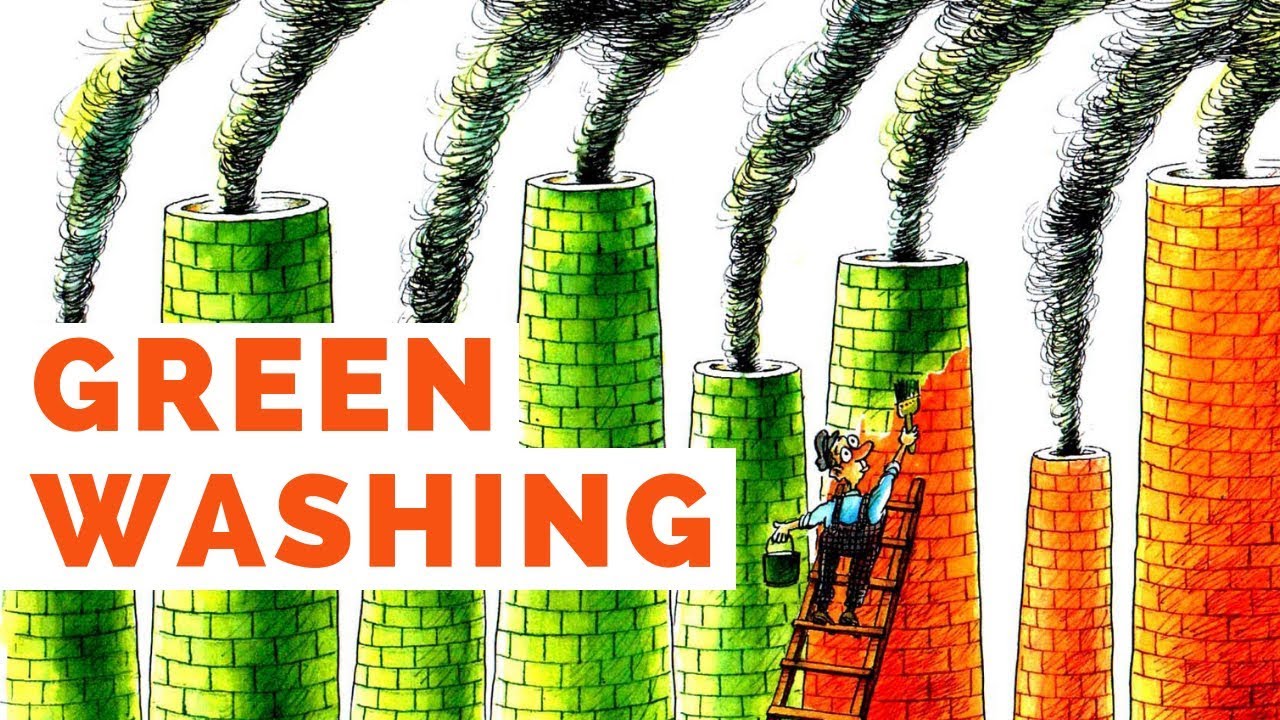Green washing - 13/05/2023
WHY IN NEWS?
Recently, RBI invites Indian based- Firms to take part in Global Financial Innovation Network’s first ever Green Washing Techsprint.
WHAT IS GREENWASHING?
• Green Washing is a term used to describe a false, misleading or untrue action or set of claims made by an organization about the positive impact that a company, product or service has on the environment.
• The term Green Washing was first coined in 1986 by environmentalist Jay Westerveld.
• Green washing is an attempt to capitalize on the growing demand for environmentally sound products.
• Genuinely green products or businesses back up their claims with facts and details.
HOW DOES GREENWASHING WORK?
• It is also known as “Green Sheen”, green washing is an attempt to capitalize on the growing demand for environmentally sound products, whether they are more natural, healthier, free of chemicals, recyclable, or less wasteful of natural resources.
TYPES OF GREEN WASHING:
1. Environmental Imageries- Using images of leaves, animals, green packaging, etc. are all ways of classic Green washing.
2. Misleading labels- Certain products are labelled “Certified”, “100% organic”, etc. without any supportive information to prove the same.
3. Hidden trade-offs- Corporations can put up an act of being environmentally friendly and sustainable but have a very non- environmental friendly trade-off.
4. Irrelevant Claims- Sometimes, you might come across labels that say they are free of certain chemicals. The substance might actually be banned by the law and is irrelevant to advertise as going green.
5. Lesser of two evils: This refers to when the company’s claim is true within the product category, but a greater risk or environmental impact.
EXAMPLES FOR GREEN WASHING:
• Volkswagen: In 2015, Volkswagen was found to have cheated emission tests by making its diesel cars appear far less polluting than they are.
• McDonald’s: In 2019, the fast-food chain started an initiative to reduce the usage of single-use plastics in its restaurants. Nevertheless, the company’s new paper straws, which have replaced the previous plastic ones, are still not recyclable.
• Coca-Cola: In 2022, Break Free from Plastic identified Coca-Cola as the world’s leading plastic polluter for the fifth consecutive year.
o Coca-Cola Life was supposed to be a low-sugar drink, and it was promoted as a “green, healthy alternative” to the average soft-drink.
o When experts argued that the drink was still innutritious, it was taken off shelves in UK shops.
Global Financial Innovation Network (GFIN):
• GFIN is a regulatory network committed to supporting Financial Innovation in the interest of consumers.
• GFIN aims to create a new framework for cooperation between financial services regulators on innovation related topic, sharing different experiences and approaches.
Reference:
• techtarget.com
• investopedia.com


